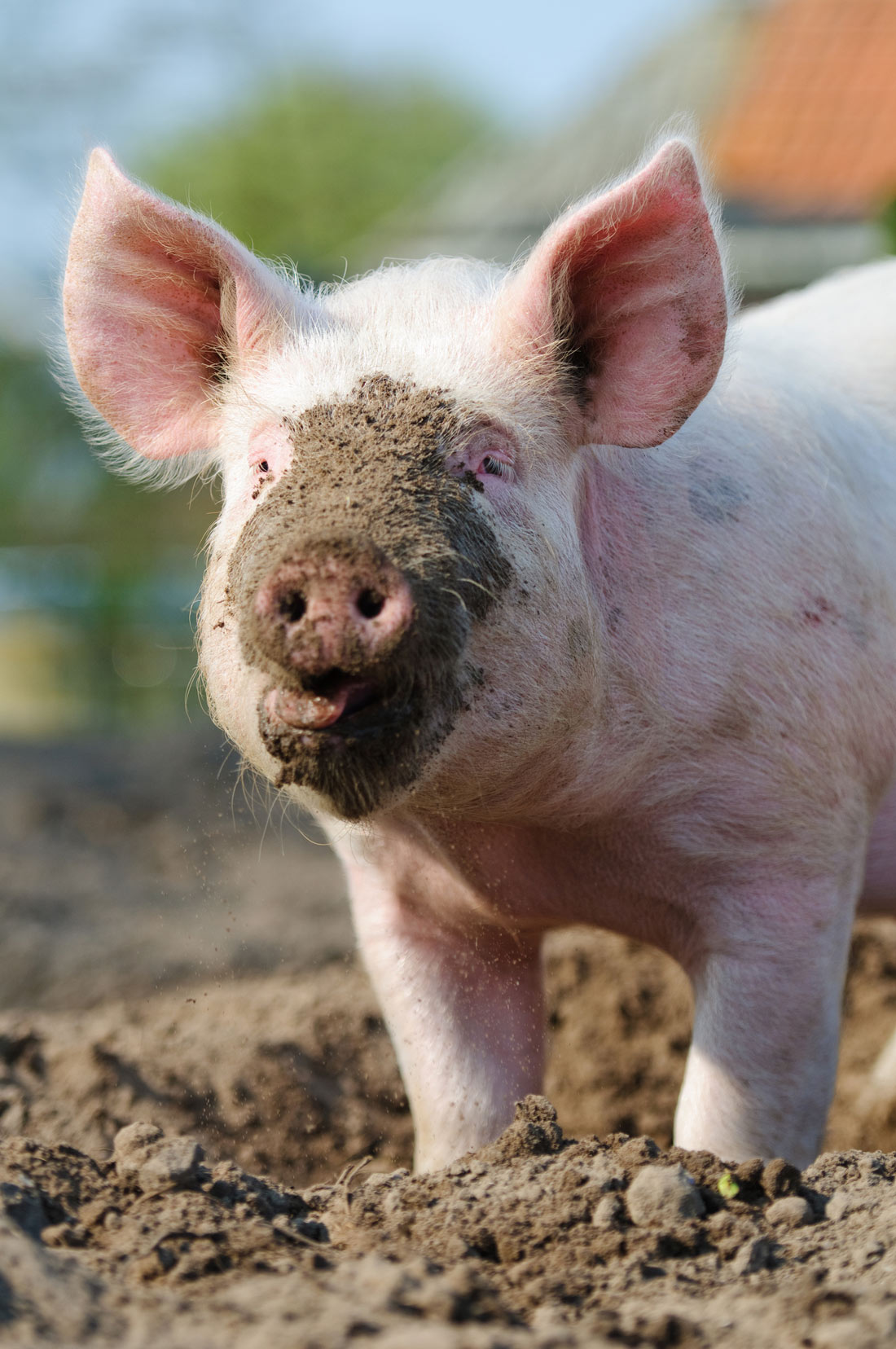
Why Pigs Love Mud

What makes a pig in the mud as happy as … well, a pig in the mud? Mud baths certainly keep pigs cool, a newly published research review finds, but wallowing may also be a sign of well-being in swine.
And since few farmers provide their swine with mud pits, wallowing may be an animal welfare issue, researcher Marc Bracke of Wageningen University and Research Center wrote online in April in the journal Applied Animal Behavior Science.
Bracke reviewed 66 research papers on wallowing behavior in pigs, wild boar and other wallowing species. Many of the papers explored theories of why animals wallow, from sun protection to parasite removal to temperature regulation.
The strongest motivation for wallowing seems to be temperature regulation, Bracke found. Pigs have few sweat glands, high body fat and a barrel-shaped torso that stores heat. Wallowing can lower a pig's temperature by 3.6 degrees Fahrenheit (2 degrees Celsius), making it more efficient than sweating would be even if pigs had lots of sweat glands. A mud bath is more cooling than a dip in cold water, Bracke wrote, because the water in mud evaporates off the pig's coated body more slowly, allowing the animal to reap the cooling benefits of evaporation for longer. [Read: Way Found to Gauge Pig's Happiness]
But even in cool weather, pigs still wallow, suggesting that the magic of mud doesn't just lie in thermal regulation, Bracke wrote. Some wild pigs seem to use mud baths to scrape off parasites such as ticks and lice; they may also rub their scent glands around wallowing areas, possibly as a way of territory marking.
However, Bracke warned, farmers shouldn't think that they can replace wallowing with air-conditioned barns and anti-parasite medicines.
"This could involve a repetition of the mistake made by animal scientists and farmers who previously suggested that farm animals do not need to forage (search for food) when they are provided with nutritious food," Bracke wrote. "That view has lead to serious welfare problems such as feather pecking and tail biting."
Sign up for the Live Science daily newsletter now
Get the world’s most fascinating discoveries delivered straight to your inbox.
In other words, the simple enjoyment of natural behaviors might factor into the "good life" for farm animals, Bracke wrote: "Progressive farmers may need to consider providing pools or showers for pigs to accommodate such a 'demand.'"
You can follow LiveScience senior writer Stephanie Pappas on Twitter @sipappas. Follow LiveScience for the latest in science news and discoveries on Twitter @livescience and on Facebook.

Stephanie Pappas is a contributing writer for Live Science, covering topics ranging from geoscience to archaeology to the human brain and behavior. She was previously a senior writer for Live Science but is now a freelancer based in Denver, Colorado, and regularly contributes to Scientific American and The Monitor, the monthly magazine of the American Psychological Association. Stephanie received a bachelor's degree in psychology from the University of South Carolina and a graduate certificate in science communication from the University of California, Santa Cruz.









